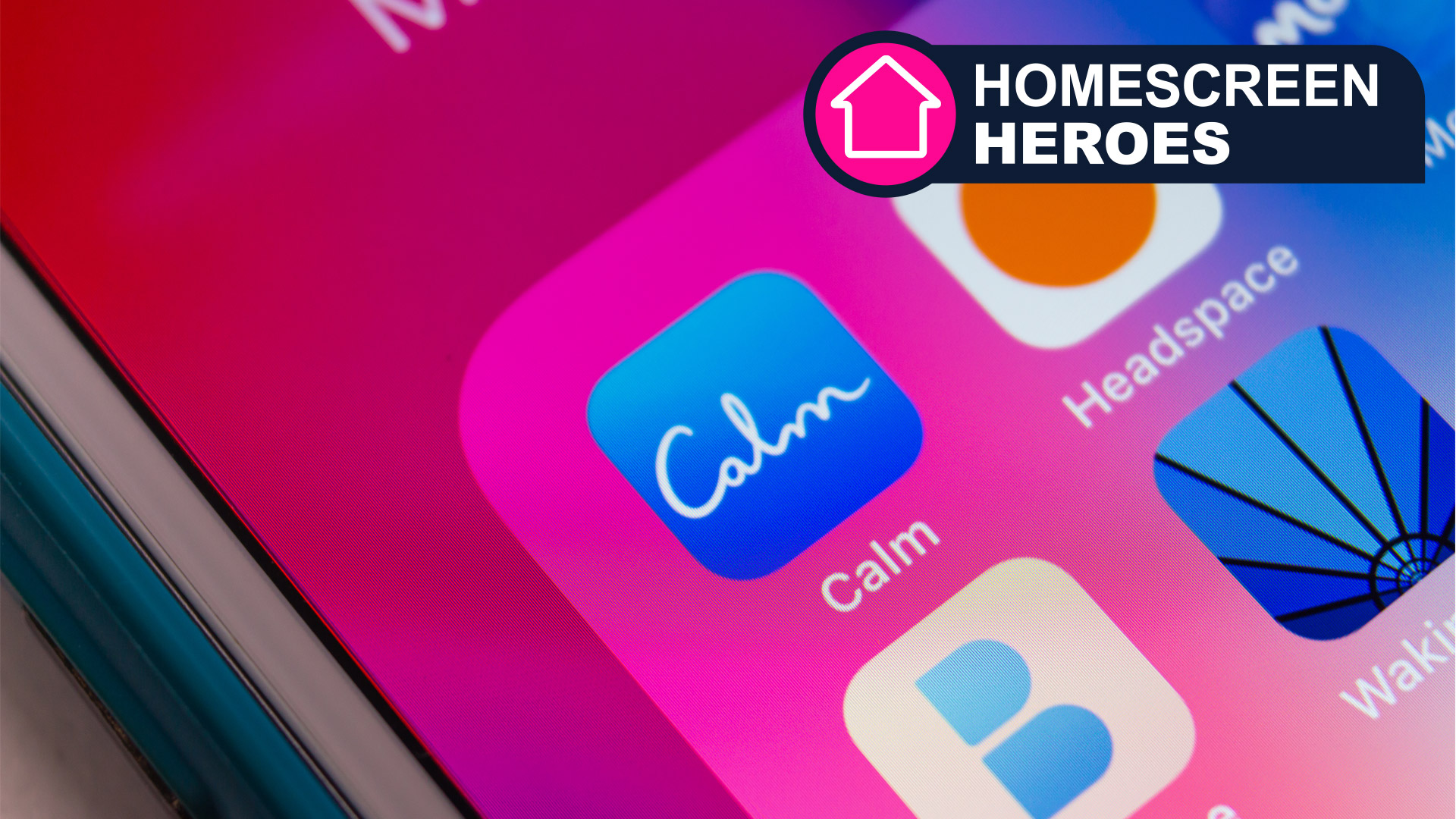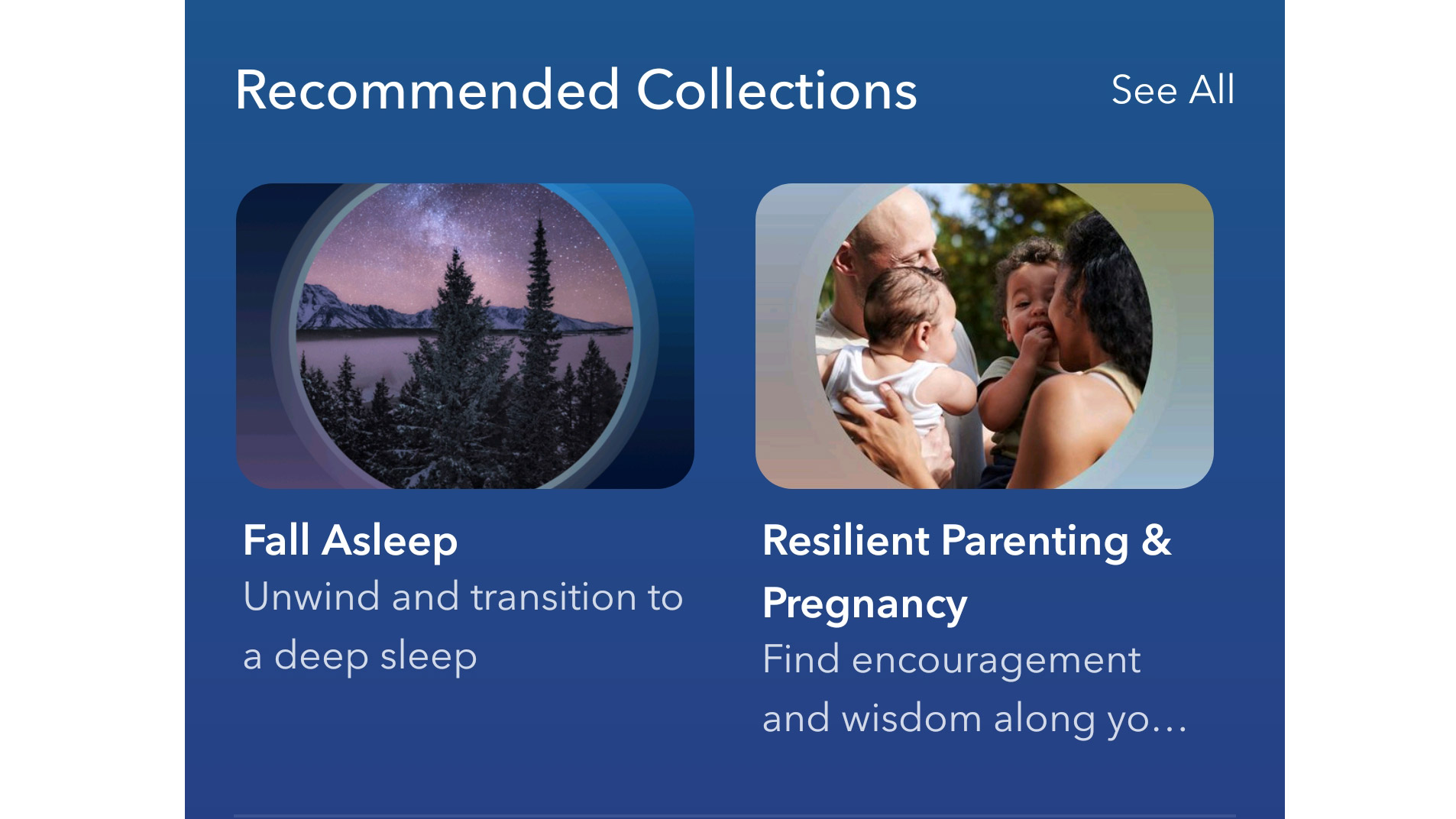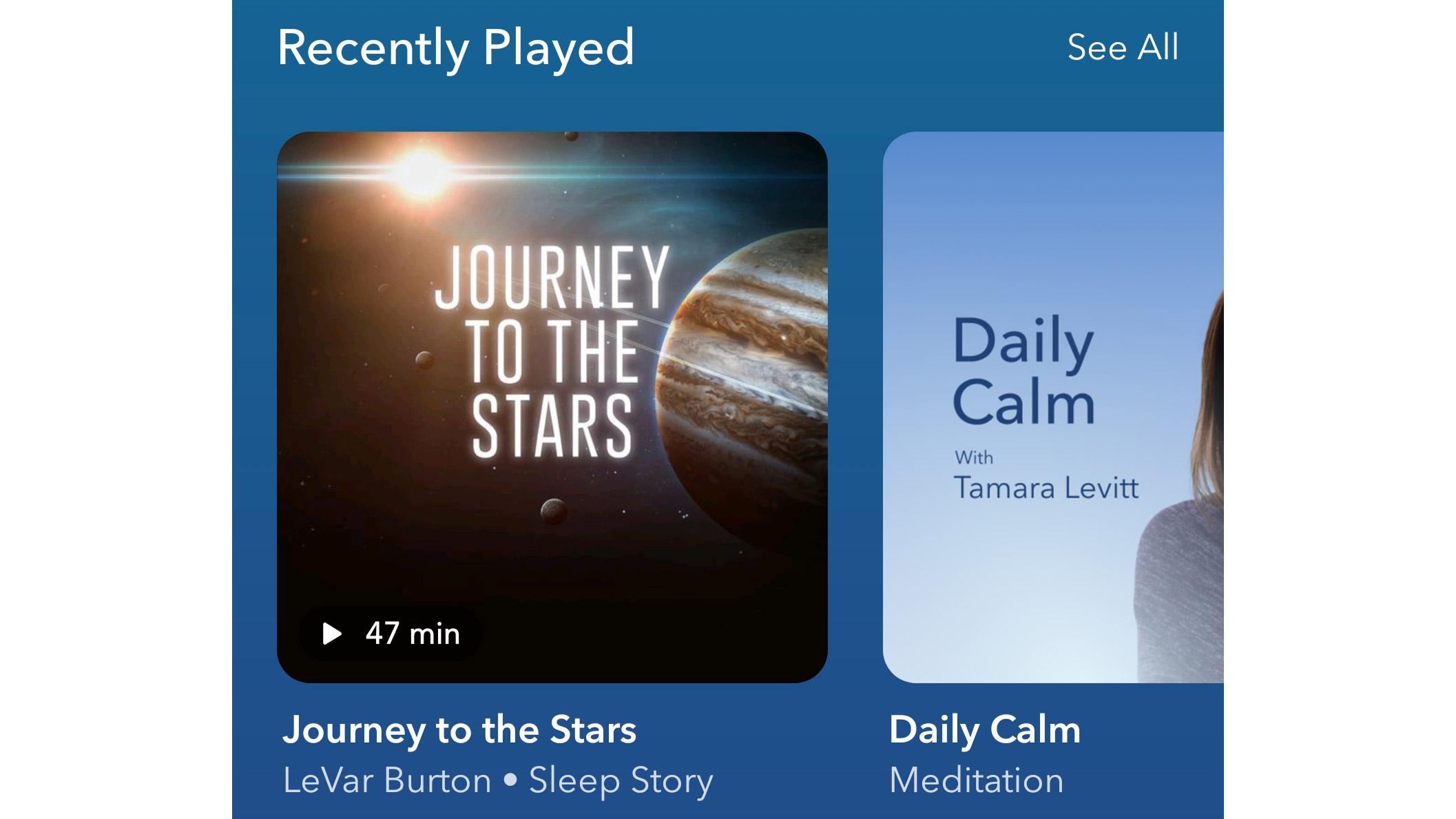I only pay for one wellness app every year, and I can’t live without it
Calm is the Homescreen Hero app I use all the time

I have a folder full of wellness apps I use regularly. My gym has an app allowing me to book classes. I use Garmin Connect to analyze my runs and Strava to share them. Apps from half a dozen of the best smartwatches, from COROS to Galaxy Wear, allow me to test all the watches that cross my desk. However, there’s only one app do I use almost every day (on a good week, anyway) and it’s the only wellness app I actually pay for. That’s Calm.
For the uninitiated, Calm is a meditation and mindfulness app that has both a free tier and a paid subscription tier, not unlike its chief competitor Headspace. For an annual fee of $69.99 / £39.99 / AUD$91.99 (although I got mine on a coupon deal of £21.99) you get access to daily guided meditations every day, 365 days a year, alongside a library of other content. This includes collections of meditations dealing with a specific negative emotion, such as anxiety, soundscapes designed for relaxation, and two-or-three minute short audio tracks to snap you out of negative thought patterns in that moment.
It’s essentially an audio streaming service, with all the content designed specifically for relaxation, meditation, reflection, and sleep. My favorite piece of content Calm puts out is definitely the 'sleep stories', audiobook snippets lasting between thirty minutes to an hour, read by both Calm employees and famous contributors such as actors Eva Green and Cillian Murphy. Shorter ones are focused on napping, with a guided meditation to help you drift off and birdsong to wake you up after 20 minutes.
This is the third in a regular series of articles exploring the apps that we couldn't live without. Read them all here.
The Meditation Game

The app itself has all the trappings of any other streaming service app like Netflix: it uses the same algorithmic tricks to keep you coming back, rewarding you for streaks and 'Like this? Try this' recommendations. It allows you to download content to your phone for offline listening, just like Netflix, and it does provide push notifications to remind you to check in and meditate today.
There’s not a mention of a crystal, chakras, or whiff of incense in sight. I’m not interested in spirituality practice, and neither is Calm – it’s all about staying relaxed, focused, or feeling peaceful
I approached Calm with a healthy degree of skepticism. Like lots of people who hear about the benefits of mindfulness and try to create a habit, I was an infrequent, frustrated practitioner who couldn’t make time for it every day. However, tying meditation to these app-based gamification strategies kind of seemed wrong to me. But hey - why not? I downloaded the free version and gave its 10-minute 'Daily Calm' meditation a shot.
'Daily Calm' features the voice of Tamara Levitt, Calm’s head of mindfulness, reminding you periodically to pay attention to your breath, and guiding where your attention goes for 10 minutes. Around the eight-minute mark, when you’re nice and relaxed, she’ll talk briefly about a different topic each day – it could be about letting go of anger in your day, embracing the opportunity to experience 'loving kindness', enjoying little things like a cup of tea during a rainstorm – before ending the meditation session.
It does sound a little bit woo-woo, and it can at times feel that way if you’re not bought in, but thankfully there’s not a mention of a crystal, chakras, or whiff of incense in sight. I’m not interested in spirituality practice, and neither is Calm – it’s all about staying relaxed, focused, or feeling peaceful.
Sign up for breaking news, reviews, opinion, top tech deals, and more.
I meditated every day for four days, listened to my free sleep story, then bought the app for a year. That was two years ago, so I’m clearly a repeat customer.
Success stories

It’s the only app I pay for. As someone who’s previously visited a doctor regarding generalized anxiety disorder, or GAD, having a tool designed to keep me grounded during day-to-day was very helpful to focus on. Feeling terrible on the train or trapped in a spiral of negative thoughts? In go the headphones for a two-minute exercise. Can’t sleep, worrying about some inconsequential rubbish the next day? In go the headphones, and I can listen to Star Trek’s LeVar Burton describe the wonders of the solar system.
My fears about tying my mindfulness practice to a digital algorithm quickly vanished: I’m embedded in a digital ecosystem that runs on my attention. I quickly learned that if I didn’t use Calm, I didn’t meditate off-grid. I just didn’t do it at all. Instead, if I didn’t have the presence of mind to pick up a book, I scrolled Reddit for 10 minutes before making my breakfast. I might as well use my digital addiction for good and get some peace of mind out of it.
When it comes down to it, I pay for Calm for the same reason I pay for any of the other best streaming services I’m subscribed to: I like the content. I find it useful, and sometimes entertaining, and the app is laid out in a way that’s easy to navigate. It helps me sleep (thanks, LeVar), it helps me maintain a mindfulness habit, and occasionally it snaps me out of a negative funk. The audio courses and meditations have taught me some lessons which I try to carry with me – not always successfully, but that’s also part of the journey.
Calm’s subscriber base is around 25 million users, with four million of us being premium subscribers. It was one of TIME’s 100 most influential companies in 2022. It’s officially, and successfully, monetized meditation; a thought which would probably send most self-respecting monks running for the hills. I almost wish it wasn’t so simple to use and deliriously effective at keeping me, well, calm – but it is, and I wholeheartedly recommend it to anyone interested in sleeping a little easier.

Matt is TechRadar's expert on all things fitness, wellness and wearable tech.
A former staffer at Men's Health, he holds a Master's Degree in journalism from Cardiff and has written for brands like Runner's World, Women's Health, Men's Fitness, LiveScience and Fit&Well on everything fitness tech, exercise, nutrition and mental wellbeing.
Matt's a keen runner, ex-kickboxer, not averse to the odd yoga flow, and insists everyone should stretch every morning. When he’s not training or writing about health and fitness, he can be found reading doorstop-thick fantasy books with lots of fictional maps in them.